Council of the Section/ Representantes de la sección
Section Board 2024-2026
Chair:
- Laura Gamboa, University of Notre Dame
Treasurer:
- Juan Albarracín Dierolf, University of Illinois at Chicago
Council Members:
- Rachel Schwarts, University of Oklahoma
- Nicolás de la Cerda, University of North Carolina at Chapel Hill
- Mateo Villamizar Chaparro, Duke University
Section Board 2022-2024
Chair:
-
Rodrigo Barrenechea, Universidad Católica del Uruguay
Secretary:
- Brian Palmer-Rubin, Marquette University
Treasurer:
- Silvia Otero Bahamon, Universidad del Rosario
Council Members:
-
Luis Schenoni, University College London
-
Hernán Flom, Trinity College
-
Carolina Curvale, FLACSO Sede-Ecuador
-
Brian Palmer-Rubin, Marquette University
Section Board 2021-2022
Chair
-
Jennifer Cyr, Universidad Torcuato di Tella
Secretary:
-
Rodrigo Barrenechea, Pontificia Universidad Católica del Perú
Council Members:
-
Gisela Sin (University of Illinois-Urbana Champaign)
-
Silvia Otero Bahamón (Universidad del Rosario)
-
Carolina Curvale (FLACSO Sede-Ecuador) and
-
Brian Palmer-Rubin (Marquette University)
Section Board 2019-2021:
Chair:
-
Jennifer Cyr (University of Arizona)
Secretary:
- Raul Sanchez-Urribarri (La Trobe University)
Council Members:
-
Andres Mejia Acosta (King’s College, London)
-
Gisela Sin (University of Illinois)
-
Miguel Centellas (University of Mississippi)
-
Rodrigo Barrechenea (Harvard University)
Section Board 2018-2019:
Chair:
-
Raul Sanchez-Urribarri (La Trobe University)
Ph.D. Candidate/post-graduate representative:
-
Rodrigo Barrenechea (Northwestern University)
Council Members:
-
Jennifer Cyr (University of Arizona)
- Andres Mejia Acosta (King’s College, London)
- Gisela Sin (University of Illinois)
- Miguel Centellas (University of Mississippi)
Biographies:
Jennifer Cyr
Jennifer Cyr is Associate Professor (as of July 2018) of Political Science and Latin American Studies at the University of Arizona. Her substantive research interests focus on representation, identity, and institutional stability and change in Latin America. Her methodological interests center on the rigorous integration of qualitative methods, and in particular focus groups, into mixed-methods research. Her book, The Fates of Political Parties: Institutional Crisis, Continuity, and Change in Latin America, was published at Cambridge University Press (2017). She has a second book under contract with Cambridge (forthcoming 2018), entitled Focus Groups for the Social Science Researcher. She has also published or forthcoming work in a wide variety of journals, including Comparative Political Studies, Comparative Politics, PS: Political Science and Politics, Studies in Comparative International Development, Sociological Methods and Research, and Revista de Ciencia Política, as well as several chapters in edited volumes. She received her Ph.D. in Political Science from Northwestern University and has an MA in Political Science from Northwestern University as well as an MA in Latin American and Caribbean Studies from Florida International University.
Andres Mejia Acosta
AMA is a Senior Lecturer in Political Economy of Emerging Markets in the Department of International Development, at Kings College London. A political scientist by training (University of Notre Dame, 2004), his work explores the political economy of producing effective, accountable and inclusive policy making in low and middle-income countries. His book "Informal Coalitions and Policymaking in Latin America" (New York: Routledge, 2009) looked at how presidents relied on the workings of informal institutions to push for economic reforms through a multiparty legislature. His research explores the political economy of managing natural resource revenues, at a national and subnational level, with particular attention to Andean countries. In addition, he is a recipient of the British Academy Career Fellowship (for the 2018-2019 academic year) to advance a book manuscript project on Nutrition Governance, looking at political motivations to invest, coordinate and implement strategies to reduce children’s undernutrition. His work has been published in political science, public policy, and development journals. Before joining King’s, Andrés was a Governance Fellow at the Institute of Development Studies (IDS) at the University of Sussex.
Gisela Sin
Gisela Sin is Associate Professor of Political Science at the University of Illinois at Urbana-Champaign. A Fulbright scholar who received her Ph.D. in political science from the University of Michigan, she studies political institutions, emphasizing the strategic elements of separation of powers. She is the author of Separation of Powers and Legislative Organization: the President, the Senate, and Political Parties in the Making of House Rules, published by Cambridge University Press and winner of the Alan Rosenthal Prize from the Legislative Studies Section. She is a co-author of a book on Argentinean institutions, Congreso, Presidencia, y Justicia en Argentina. She has published numerous articles on American and Comparative politics and is currently examining the strategic use of vetoes in the US States and Latin America. She is the co-chair of the Legislative Studies Group at the Latin America Political Science Association, and co-editor of “The Legislative Scholar”, the newsletter of the APSA’s Legislative Studies Association.
Miguel Centellas
Miguel Centellas is Croft Instructional Assistant Professor of Sociology & International Studies at the University of Mississippi. His research interest is on electoral politics and institutions, with a country focus on Bolivia. He also co-directs an interdisciplinary summer research methods field school in Bolivia through a joint partnership between the Universidad Católica de Bolivia and the University of Mississippi. My ideas for the section include working to organize a data collection portal, particularly focusing on subnational electoral data for countries in the region. One of the frustrations of cross-national research is that often country experts have very fine-grained data for their country, but these are not always readily available to other scholars. I think a good project for the Political Institutions Section of LASA would be to collect and curate such a collection digitally. The Georgetown-based Political Database of the Americas offers a template. But it’s worth noting that PDBA has not been consistently updated in the last decade, does not offer subnational-level data, and does not make data available in files readily useful for quantitative or large-N analysis.
There are no upcoming events posted at this time.
